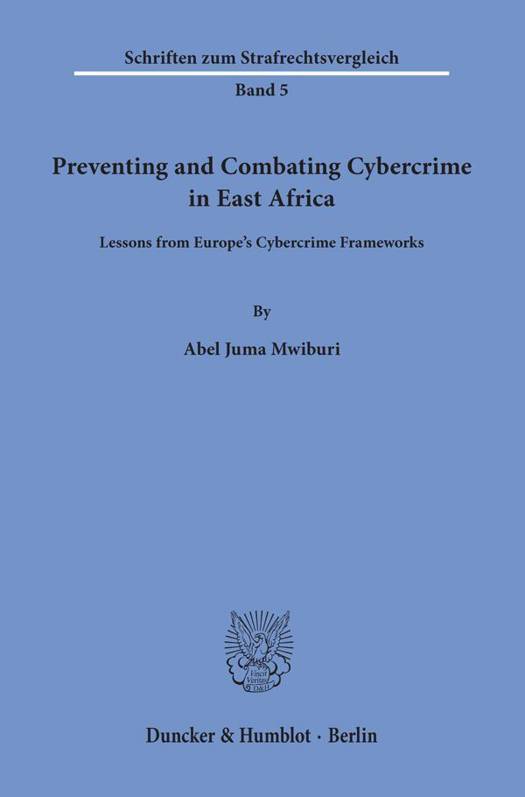
- Afhalen na 1 uur in een winkel met voorraad
- Gratis thuislevering in België vanaf € 30
- Ruim aanbod met 7 miljoen producten
- Afhalen na 1 uur in een winkel met voorraad
- Gratis thuislevering in België vanaf € 30
- Ruim aanbod met 7 miljoen producten
Zoeken
Preventing and Combating Cybercrime in East Africa.
Lessons from Europe's Cybercrime Frameworks.
Abel Juma Mwiburi
€ 179,95
+ 359 punten
Omschrijving
The focus of this book is to examine the effectiveness of the measures currently employed in East Africa as a region, and in the individual Member States in dealing with cybercrime and how best the same can be modified to prevent and combat cybercrime in the region. So, the subsequent analysis in this book is done with a view of drawing some lessons from Europe's cybercime regimes. In so doing, the book is set to critically examine the role of the law in preventing and combating cybercrime in East Africa; investigate the extent to which the current laws address the problem of cybercrime and ICT governance and regulation in the East African region at country and regional levels; examine the level and extent of cooperation required among the EAC partners in fighting cybercrime; analyze legal and institutional challenges on ICT governance and regulation in East Africa and globally with a view of creating a crime-free environment for the Internet and computer users; and examine the best ways through which the East Africa region can ensure efficient regulation of ICT through a regime that will prevent and combat cybercrime without necessarily inhibiting social, political and economic development.
Specificaties
Betrokkenen
- Auteur(s):
- Uitgeverij:
Inhoud
- Aantal bladzijden:
- 241
- Taal:
- Engels
- Reeks:
- Reeksnummer:
- nr. 5
Eigenschappen
- Productcode (EAN):
- 9783428156016
- Verschijningsdatum:
- 12/12/2018
- Uitvoering:
- Paperback
- Formaat:
- Trade paperback (VS)
- Afmetingen:
- 155 mm x 231 mm
- Gewicht:
- 3805 g

Alleen bij Standaard Boekhandel
+ 359 punten op je klantenkaart van Standaard Boekhandel
Beoordelingen
We publiceren alleen reviews die voldoen aan de voorwaarden voor reviews. Bekijk onze voorwaarden voor reviews.








